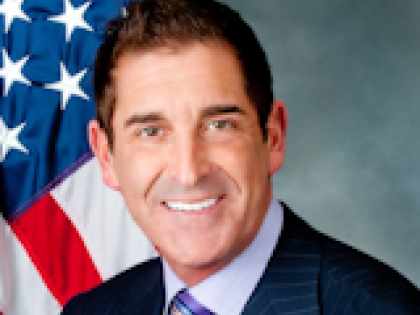
New York Senate Unanimously Passes Klein Bill Banning Sale of Popular but Fatal Over the Counter Muscle Building Supplement
Jeffrey D. Klein
June 12, 2013
-
ISSUE:
- Health
ALBANY, NY- On Wednesday, the New York State Senate passed legislation sponsored by Senate Co-Leader Jeff Klein (D-Bronx/Westchester) aimed at protecting New York teens from one of the most insidious and dangerous muscle building supplements on store shelves today. The bill (S.2377-A) bans the sale and distribution of any dietary supplement containing DMAA, a dangerous chemical compound found in over a dozen products sold in GNC stores across the state.
DMAA has been linked to 86 reports of illness and death according to the FDA, including the death of young Army Private Michael Lee Sparling, considered to be in peak physical condition, during a routine training activity. One the day of his death, Pvt. Sparling had taken the recommended dose of Jack3d, a powder containing DMAA, before joining his unit for a scheduled run. After ten minutes, he collapsed and suffered cardiac arrest, causing his death. The U.S. military has since banned all DMAA-product from all of its bases.
The sale of any product containing DMAA is currently banned within the European Union, Canada, Australia, and New Zealand. DMAA is also banned by every professional and amateur sports association, including the NFL, MLB, NBA and NCAA.
Senate Majority Coalition Leader Jeff Klein said, “This is a major victory for families and health reform advocates across New York. If DMAA is not safe for soldiers, it’s not safe for our kids. These manufacturers are exploiting shortcomings in FDA oversight to profit off of unsuspecting student athletes. Our kids are being told that DMAA will give them an edge over their competition. But that’s dead wrong. Not only are these products dangerous, but they jeopardize the athletic eligibility of anyone who uses them. We’re here to put an end to that. The outright refusal by drug makers and retailers to place a meaningful warning label on these products is shameful. We will not allow their recklessness to endanger any more student athletes.”
Dr. Pieter Cohen, Professor of Medicine at Harvard Medical School and Partner at Cambridge Health Alliance said, “It’s unacceptable that an experimental drug is sold is in the guise of a natural supplement. Senator Klein’s legislation is an important step in the right direction toward ensuring the safety of supplements sold in New York.”
In April, the FDA warned major manufacturers that dietary products containing DMAA are now “illegal.” However, given the FDA’s limited discretion over the “nutritional supplement industry,” this action was not enough to compel retailers to discontinue the sale of DMAA-laced products. Senator Klein’s bill is the first of its kind in the nation, and, if passed, would solidify New York’s reputation as the leader in sound public safety policy.
An American pharmaceutical company developed DMAA in the 1940s for use as a nasal decongestant. But in the 1970s, faced with enhanced oversight by the FDA, American pharmaceutical companies halted production. According to Dr. Cohen, the supplement’s current manufacturers may be using DMAA as a substitute for Ephedra, the dangerous and controversial drug banned by the FDA following a string of deaths linked to the drug. As Dr. Pieter Cohen recently reported in the Archives of Internal Medicine, DMAA produces a series of physiological responses that are remarkably similar to those created by Ephedra.
Share this Article or Press Release
Newsroom
Go to Newsroom
